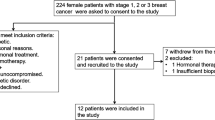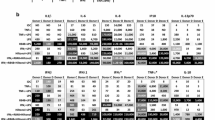Abstract
Chemo- as well as immunotherapeutical approaches induce apoptosis in tumor cells. Apoptotic cells are known to activate homologous complement and to be opsonized with iC3b. Since maturation of dendritic cells (DC) can be inhibited by binding of iC3b to the complement receptor 3 (CR3, CD11b/CD18) and because immature DC induce tolerance, we investigated the induction of tolerance after pulsing DC with apoptotic cells in the presence or absence of native serum. Apoptosis in pancreatic carcinoma cells was induced either by heat-stress, chemotherapy or anti-Her2 antibody. Monocyte-derived DC were pulsed with apoptotic cells with or without native serum. DC were analyzed for the maturation state by flow cytometry and the cytotoxic activity was determined. Tolerance was prevented by addition of substances such as anti CD11b or N–acetyl-D-Glucosamine (NADG) which block iC3b binding to CR3. Furthermore, binding of iC3b from apoptotic cells to DC was blocked in a syngeneic pancreatic carcinoma mouse model. All of the former strategies for apoptosis induction resulted in iC3b release. Pulsing DC with apoptotic cells in the presence of serum prevents maturation of DC and induces finally tolerance. This tolerance could be prevented almost completely by blocking the interaction of iC3b with the CR3 receptor. This could be shown as well in an immunocompetent mouse model. Chemo- as well as immunotherapeutical approaches induce apoptosis in tumor cells. Release of iC3b from apoptotic tumor cells prevents fully maturation of DC and immature DC induce antigen-specific silencing or tolerance. Blocking of iC3b-binding could mostly prevent this effect.






Similar content being viewed by others
References
Albanell J, Codony J, Rovira A, Mellado B, Gascon P (2003) Mechanism of action of anti-HER2 monoclonal antibodies: scientific update on trastuzumab and 2C4. Adv Exp Med Biol 532:253
Albert ML (2004) Death-defying immunity: do apoptotic cells influence antigen processing and presentation? Nat Rev Immunol 4:223
Fong L, Engleman EG (2000) Dendritic cells in cancer immunotherapy. Annu Rev Immunol 18:245
Guermonprez P, Valladeau J, Zitvogel L, Thery C, Amigorena S (2002) Antigen presentation and T cell stimulation by dendritic cells. Annu Rev Immunol 20:621
Junnikkala S, Hakulinen J, Jarva H, Manuelian T, Bjorge L, Butzow R, Zipfel PF, Meri S (2002) Secretion of soluble complement inhibitors factor H and factor H-like protein (FHL-1) by ovarian tumour cells. Br J Cancer 87:1119
Menard S, Pupa SM, Campiglio M, Tagliabue E (2003) Biologic and therapeutic role of HER2 in cancer. Oncogene 22:6570
Morelli AE, Larregina AT, Shufesky WJ, Zahorchak AF, Logar AJ, Papworth GD, Wang Z, Watkins SC, Falo LD Jr, Thomson AW (2003) Internalization of circulating apoptotic cells by splenic marginal zone dendritic cells: dependence on complement receptors and effect on cytokine production. Blood 101:611
Ramos OF, Kai C, Yefenof E, Klein E (1988) The elevated natural killer sensitivity of targets carrying surface-attached C3 fragments require the availability of the iC3b receptor (CR3) on the effectors. J Immunol 140:1239
Reinhard G, Märten A, Kiske SM, Feil F, Bieber T, Schmidt-Wolf IG (2002) Generation of dendritic cell-based vaccines for cancer therapy. Br J Cancer 86:1529
Sohn JH, Bora PS, Suk HJ, Molina H, Kaplan HJ, Bora NS (2003) Tolerance is dependent on complement C3 fragment iC3b binding to antigen-presenting cells. Nat Med 9:206
Steinman R (1991) The dendritic cell system and it’s role in immunogenicity. Annu Rev Immunol 9:271
Steinman RM, Pope M (2002) Exploiting dendritic cells to improve vaccine efficacy. J Clin Invest 109:1519
Steinman RM, Turley S, Mellman I, Inaba K (2000) The induction of tolerance by dendritic cells that have captured apoptotic cells. J Exp Med 191:411
Takizawa F, Tsuji S, Nagasawa S (1996) Enhancement of macrophage phagocytosis upon iC3b deposition on apoptotic cells. FEBS Lett 397:269
Verbovetski I, Bychkov H, Trahtemberg U, Shapira I, Hareuveni M, Ben-Tal O, Kutikov I, Gill O, Mevorach D (2002) Opsonization of apoptotic cells by autologous iC3b facilitates clearance by immature dendritic cells, down-regulates DR and CD86, and up-regulates CC chemokine receptor 7. J Exp Med 196:1553
Acknowledgements
We thank Karin Steybe for excellent technical assistance and Anna Kling for proofreading of the manuscript.
Author information
Authors and Affiliations
Corresponding author
Rights and permissions
About this article
Cite this article
Schmidt, J., Klempp, C., Büchler, M.W. et al. Release of iC3b from apoptotic tumor cells induces tolerance by binding to immature dendritic cells in vitro and in vivo. Cancer Immunol Immunother 55, 31–38 (2006). https://doi.org/10.1007/s00262-005-0690-5
Received:
Accepted:
Published:
Issue Date:
DOI: https://doi.org/10.1007/s00262-005-0690-5




